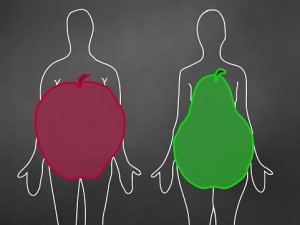How To Change Your Eating Habits In Healthy Eating
In spite of expert advice to the contrary, most of us will decide to go on a diet at some point. At any given time, 23 percent of adult men and 41 percent of adult women in the United States are trying to lose weight. Whether in response to gorging ourselves on the Thanksgiving turkey and all the fixings, to noticing the "spare tire" or "love handles" on our midsections, or to other events, the attempt to lose a few pounds is a common practice in American society. Given the hundreds of different diets and endless expert advice available, why do we fail most of the time?
• Determining What Triggers Your Eating Behavior Before you can change a given behavior, you must first determine what causes that behavior. Why do you suddenly find yourself at the refrigerator door eating everything in sight? Why do you take that second and third helping of potatoes or dessert when you know that you should be trying to lose weight?
Many people have discovered that one of the best ways of assessing their eating behavior is to chart exactly when they feel like eating, where they are when they decide to eat, the amount of time they spend eating, other activities they engage in during the meal (watching television or reading), whether they eat alone or with others, what and how much they eat, and how they felt before they took their first bite. If you keep a detailed daily log of the triggers listed in Figure 15.3 for at least a week, you will discover useful clues about what in your environment or in your emotional makeup causes you to want food. Typically, these dietary "triggers" center on problems in everyday living rather than on real hunger pangs. As you record this information, your reasons for eating will often become apparent. Many people find that they eat compulsively when stressed or when they have problems in their relationships. For other people, the exact same circumstances diminish their appetite, causing them to lose weight.
• Changing Your Triggers Once you recognize the factors that cause you to eat, removing the triggers or substituting other activities for them will help you develop more sensible eating patterns. Here are some examples of substitute behaviors:
1. When eating dinner, turn off all distractions, including the television and radio.
2. Replace snack breaks or coffee breaks with exercise breaks.
3. Instead of gulping your food, force yourself to chew each bite slowly.
4. Vary the time of day when you eat. Instead of eating by the clock, do not eat until you are truly hungry. Allow yourself only a designated amount of time for eating but do not rush. Try to become more aware of true feelings of hunger.
5. If you find that you generally eat all that you can cram on a plate, use smaller plates. Put your dinner plates away and use the salad plates instead.
6. If you find that you are continually seeking your favorite foods in the cupboard, stop buying them. Or place them in a spot that is very inconvenient to reach. (Having to run upstairs for the sugar bowl will probably force you to think twice before using sugar.)
These are just suggestions. After recording your daily intake for a week, you will be able to devise a list of substitutes that are geared toward your particular eating behaviors.
-
Have More Energy By Following The Sleep Apnea Advice Found Here
Sleep apnea is a serious health problems which deprives people of
-
Different Workout To Stay Fit
Staying fit and healthy is the latest trend. And more people are follo
-
Side effects of drinking too much diet soda
Drinking soda can have negative health effects; more specifical
-
All About Fitness - A Manner Towards Vigorous Life
Fitness is normally attained through exe
-
BMI Between Meal Intrigue Hits The Highway
If youve been pursuing a lighter, healthier version of yourself, its l
-
Weight Loss Secrets I Should Know About
Are there weight loss secrets I should know about? Losing Weight is
- DON'T MISS
- Weight Loss Program Reviews- What You Need to Know
- 4 Simple Burn Belly Fat Exercises
- 4 fibre-filled weight loss foods
- Convert Your Slow Metabolism Into A Rapid Fat Burning Machine
- Tom Venuto shows the way to Burn the Fat Feed the Muscle
- Get Rid Of Beer Belly - 4 Things You Must Know To Say Good Bye To Beer Belly
- Fast Weight Loss The Healthiest Fast Weight Loss Plan
- Is Cardio or Resistance Exercise Better for Health?
- The Top 10 Tips To Weight Loss Health And FitnessTip 8
- Coping with Fitness Injuries for Shorter Recovery Times




